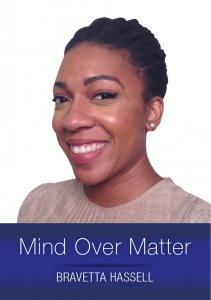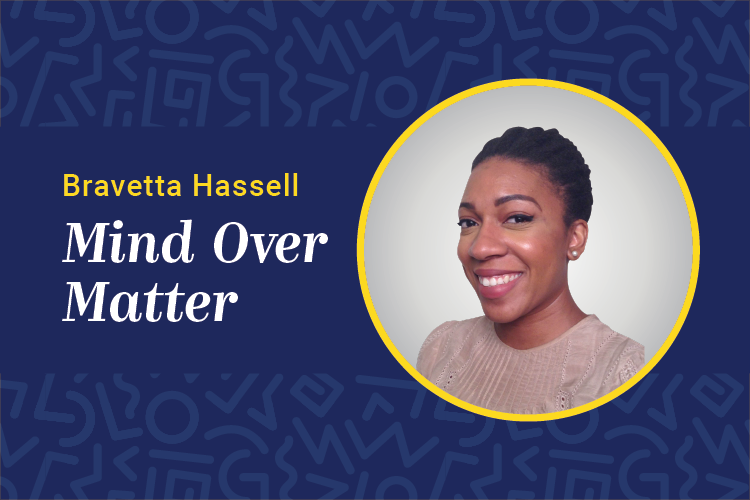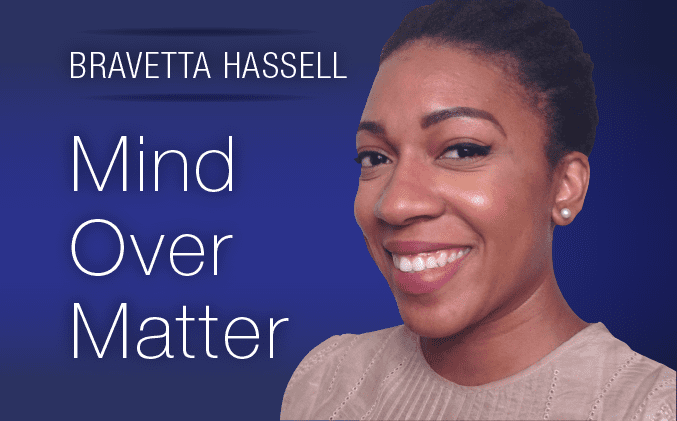 “Listen to me, you can’t walk forward looking behind you.”
“Listen to me, you can’t walk forward looking behind you.”
The young child with the curly blonde hair was cautiously making his way down the escalator, his mother coaxing him forward as his father followed behind.
I’m a sucker for the wise things people say in public places, and while the father’s admonishment to his son that evening at the train station was meant literally — essentially, get your butt down the escalator, please — it resurfaced for me as the 2016 presidential election results came in.
Not so much the part about don’t look back — looking back, knowing what’s behind you, what got you to the place where you are is very important because you just can’t stay in one spot. There are lessons there, you take them and you move. It is disadvantageous to live in the past, and I’ve learned, it’s not particularly productive to be too absorbed by the present either.
I think President-elect Donald Trump knew this. His politics or lack thereof aside, the real estate mogul was playing a longer game, a different game, that many failed to realize until the red began to accelerate toward the halfway point of last night’s electoral vote status bar. And then, Trump went on ahead and won.
Now, let’s back up a bit. Democratic presidential candidate Hillary Clinton launched a campaign where she brought a tried and true strategy to the table: her unifying values and political experience. On that table she laid facts and things that sounded like facts, a tangible vision and assurance that many could get behind and wanted to support. Trump flipped that table right over.
In the early lineup of qualified and … interesting … comparatively milquetoast competitors, Trump, an outsider with a presence and persona that was hard to ignore, was the gadfly, which would ultimately serve him well. It served him well based on the social, political and economic flux taking place in this age of distraction in which we find ourselves. In it, we are often led by our senses and consumed in the moment. And in every moment, there was Trump, saying something controversial or flat-out offensive but nevertheless quotable and repeated, scowling at us in pictures, but forcing us to remember him.
There were days in which thumbnails of Trump — classified in a summer Atlantic article as having disagreeable and narcissistic qualities — accounted for more than a handful of consecutive spots on the homepage of major news outlets’ websites. Whether we wanted to be or not, we were obsessed with him and it showed. Perfect in a culture where everything from the significant to the silly is ripe for a once-over in a meme generator and gif creator. Before long, the issues that should have driven this election were sadly muffled by the spectacle it had become, all packaged for easy consumption and mass distribution.
Who’s to say whether that was his strategy at the outset. But as the results rolled in, it became quite apparent Trump was a bit more attuned to the big picture than we were. Trump’s election, Clinton’s defeat, is a reminder of the power and disruptive potential of a small start-up on big business. Trump’s campaign was nimble like a digital start-up, Clinton’s wasn’t. Trump was contextually an upstart with a vision that appealed to an audience that felt forgotten and jilted. He built his success from that place, with an understanding of the climate he was operating within, then he kicked up his feet and let his personality do the work.
The result: Trump’s surprising nomination and now election, which in empowering the shrinking voice of a silent majority has revealed a troubling undercurrent of racism, bigotry, Islamophobia, misogyny and general hatred that runs startlingly deeper and more boisterously in this country than we would like to imagine possible in the 21st Century. That spirit will imperil everyone if not meaningfully addressed.
However unconventional and unlikely Trump appeared as a serious competitor at the beginning of this race, he won, leaving many shocked in the dust behind him, but with some tough lessons for learning and for life. So, pay attention. Really. Pay attention. Trump’s election didn’t come as a surprise to many including political historian and American University professor Allan Lichtman, and similar disruptions shouldn’t come as a surprise to businesses if they pay attention.
Listen to everybody, especially those in the margins. I won’t debate who’s really in the margins in this society, but Trump identified, sang to and rallied a significant audience and worldview that others might want to believe does not count. That type of thinking and lack of openness to dissent and difference will limit a company’s impact. Listening to everybody doesn’t mean be swayed by them, just be willing to see and hear what they have to say. Of course, you want to lavish your attention on those who support your cause — in meetings, in business, in policy — but you’re missing something by ignoring detractors, be it change-making intel or the possibility of a valuable collaboration.
See beyond your competitors. Get a clue about the game you’re really in. Last month, Leadership and Management Consultant Simon Sinek discussed how a lot of companies are completely out of the loop when it comes to the game they’re playing — it’s not the one where, for instance, one appliance company is competing against another appliance company. It’s the game where one company of whatever service or product is aware of its competitors but is laser focused on its unique long game, on what it will take to not only beat Company X or Company Y, but be around 20-plus years from now.
Which brings us to the next point.
Keep learning. Don’t learn to become a subject matter expert. Learn to increase awareness, and with the tangible, strategic application of that awareness, to enable greater innovation. When in continual discovery mode about what technologies, approaches and talent is outside the confines of their industry bubble, and on the industry horizon, leaders can proactively protect their business or their function — even when there is large-scale change ahead. Keep your head in the clouds, and the same technologies, approaches and talent you could have used to enhance your business or role will be used against you.
And above all, like that child on the escalator, keep looking forward. Don’t get lost in the present. Of course, we’re actively working in it, but see beyond this moment. Because as this election has shown us, change is inevitable, and what is familiar is liable to shift at a moment’s notice, but not without some markers. Once our heads stop spinning, we must focus our eyes forward and be vigilant. There’s much work to be done.
Bravetta Hassell is an associate editor for Chief Learning Officer. To comment, please email editor@CLOmedia.com.















